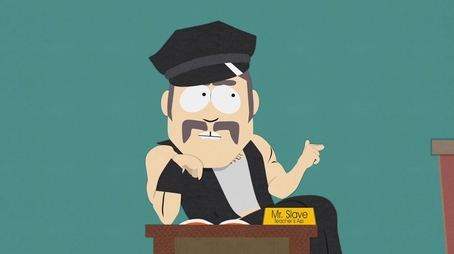
Sorry, we have not watched this yet.

A loveable new character, Mr Slave, makes his debut as Mr. Garrison desperately tries to get fired from his new job as the boys' 4th grade teacher. Meanwhile, the boys get sent to the Deathcamp of Intolerance for not tolerating Mr. Garrison's intolerable behavior.
Sorry, we have not watched this yet.